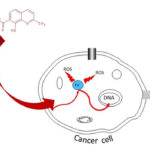Daily Archives: May 4, 2016
Kv7 potassium channels’ subunit composition determines their physiological regulation in arterial smooth muscle cells
Arteries have the remarkable ability to adjust the amount and force of blood that flows through them. Such adjustments are made possible by contraction or relaxation of arterial smooth muscle cells (ASMCs) within the walls of the
How to measure maximum animal performance
X chromosome inactivation and escape: skipping Lyon’s law causes sex differences and disease
Do doctors understand what helps patients with hepatitis C stay on and complete their treatment?
To be cured of hepatitis C, patients must take their medications as prescribed without missing doses and complete the full course of treatment. However, almost half of patients with hepatitis C find it difficult to take their











